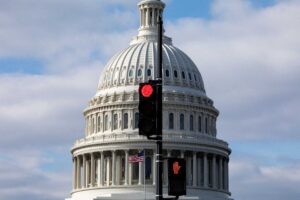
Coinbase’s attempt to secure a national trust charter has sparked significant opposition from the banking sector. The cryptocurrency exchange, headquartered in the United States, submitted its application to the United States Office of the Comptroller of the Currency (OCC) in October 2023. This move aims to establish a closer connection with traditional financial institutions, but it has drawn criticism from the Independent Community Bankers of America (ICBA).
In a letter dispatched to the OCC, the ICBA expressed strong opposition to Coinbase’s application, arguing it would threaten the interests of banks as the exchange seeks to integrate further into the financial sector. The organization highlighted concerns regarding “untested” aspects of cryptocurrency custody and suggested that Coinbase’s subsidiary may struggle to achieve profitability, particularly during downturns in the crypto market.
Paul Grewal, Coinbase’s Chief Legal Officer, responded to the ICBA’s position, stating in a post on social media platform X, “It’s another case of bank lobbyists trying to dig regulatory moats to protect their own.” Grewal’s comments reflect a broader frustration within the cryptocurrency industry regarding perceived resistance from traditional banking institutions.
The ICBA’s letter called on the OCC to either reject Coinbase’s application outright or extend the review period to allow for a more comprehensive public examination of the firm’s business plan and its potential legal and regulatory implications. The OCC is expected to take between 12 and 18 months to assess Coinbase’s application.
Despite the hurdles, Coinbase has emphasized that it does not intend to operate as a traditional bank. Other cryptocurrency companies, such as Ripple Labs and Circle, have pursued banking charters, particularly following recent legislative efforts in the U.S. aimed at establishing frameworks for payment stablecoins. These developments suggest a growing interest among crypto firms in solidifying their status within the traditional financial landscape.
Coinbase’s application is not the only one under review; Ripple’s recent application was also scheduled for consideration by the OCC. As of now, no public decision has been announced regarding Ripple’s charter, leaving the future of these applications uncertain.
The banking sector’s resistance to cryptocurrency integration underscores a significant tension between traditional finance and the evolving digital economy. As Coinbase and its peers navigate these challenges, the outcome of their applications could have lasting implications for both industries.
For now, the landscape remains dynamic as both sides prepare for an ongoing debate over the future of banking and cryptocurrency in the United States.






